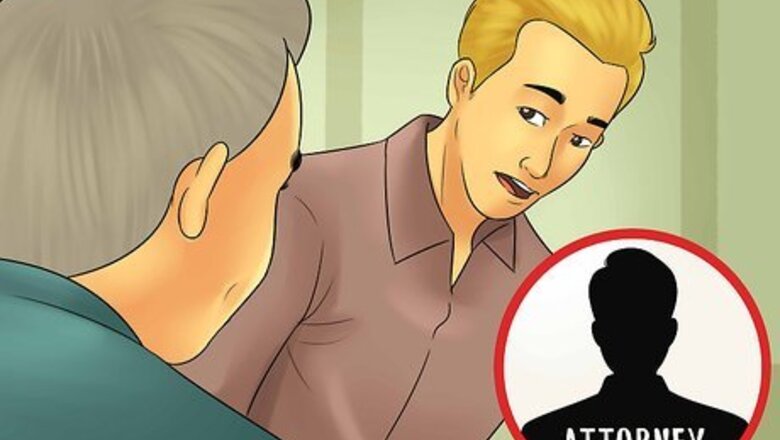
views
X
Research source
[2]
X
Research source
Hiring an Attorney
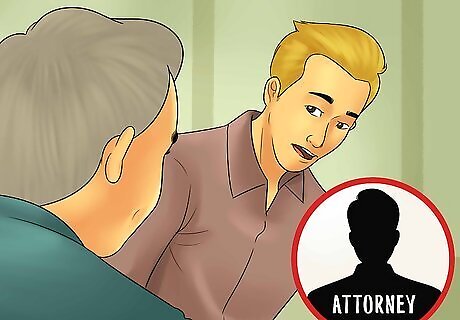
Seek referrals from family and friends. If you know anyone who has been in a similar situation, ask if they would recommend the attorney who represented them. Since these people are close to you and know you well, they can be your best resources. However, keep in mind that just because an attorney worked well for a friend doesn't mean that same attorney will work well for you. Criminal defense is a broad field, and attorneys often specialize in particular areas of the law. Additionally, what you want from your attorney and the style of practice you prefer may differ from that of a friend or family member. Getting a recommendation is no excuse to skip doing background work and investigation of the attorney. As a criminal defendant, you have the right to an attorney. However, you may get a better defense if you hire a private attorney rather than using a public defender.
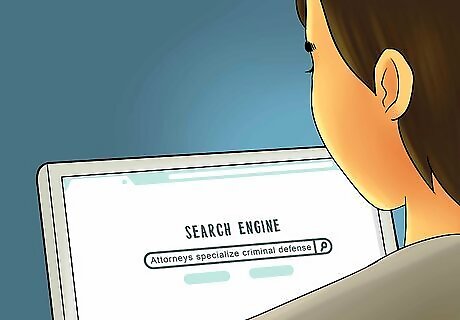
Conduct an online search. Regardless of whether you have recommendations from friends, take the time to look for criminal defense attorneys online so you have several from which to choose. The website of your state or local bar association is a good place to start. State and local bar associations have searchable directories of attorneys licensed to practice in your area. You also may find a referral program that can match you with attorneys based on your answers to a few questions. Look for attorneys who specialize in criminal defense, particularly those who frequently defend people charged with possession. Check each attorney's website, if they have one. You can learn more about that attorney's particular areas of focus as well as get some information about their background and personal interests.

Schedule at least three initial consultations. Generally, you want to have three or four interviews with potential attorneys so you can compare and contrast them to find the best match for your situation. Most criminal attorneys offer a free initial consultation, so you shouldn't have to spend a lot of money talking to more than one attorney. Depending on how far along you are in the criminal process, you may have to act fast. If an attorney can't see you within a week, they probably are too busy to give your case the attention it deserves. You may want to schedule more than one consultation in a day, but be sure to leave several hours between each appointment so you have enough time.
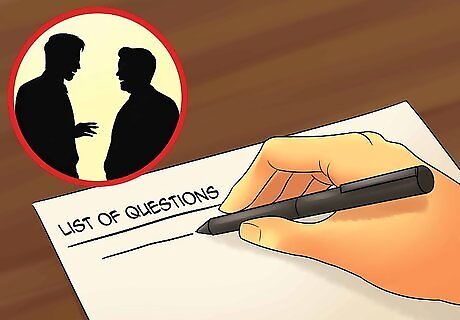
Ask each attorney detailed questions. Preparing a list of questions ahead of time is a good idea, because it ensures you don't forget anything and are getting similar information from every attorney you interview. Keep in mind that most attorneys have a generic script that they work from for initial consultations. They'll have basic information about your case, and they'll give you a run-down of their background, experience, and what they can do for you. Since this is the same thing they tell anyone who schedules an initial consultation, it won't be designed specifically for you and may not touch on things that are important to you personally. For this reason, you have to be prepared to ask the questions about the things that matter to you most. Be sure to find out how many cases similar to yours each attorney has handled, and what the outcomes were. Find out how long the attorney has been practicing in the area. Ideally, you'd like to hire someone who has been practicing criminal defense in your county for several years, and is familiar with the judges and prosecutors.

Make your final decision. When your initial consultations are complete, compare and contrast the attorneys you interviewed to find which one can best meet your goals and fit within your budget. Once you've made your decision, call that attorney as soon as possible to let them know you want to hire them. Fees probably are important, particularly if you don't have a lot of money to spend on your defense. However, you should balance the fees against the prospects for you if you're found guilty of the crime. After several interviews, there typically is someone who stands out to you. That may be because they're the most qualified, or it may be because you just felt comfortable with that attorney and were sure they had your best interests at heart. Don't be afraid to go with your gut. A less-experienced attorney who is passionate about your defense may work better for you than a more experienced attorney who's jaded and just goes through the motions with little feeling. Make sure you sit down with your chosen attorney before the defense starts in earnest. They typically will present you with a written retainer agreement. Read it carefully and make sure you understand it before you sign.
Building Your Case
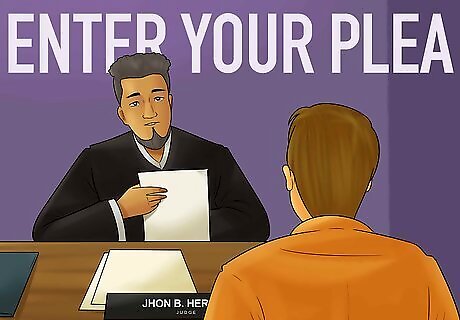
Enter your plea. If you haven't already, you'll need to enter a plea of "not guilty" if you want to defend yourself against the possession charges. Typically you're given the opportunity to enter your initial plea during arraignment, when the charges are read out to you. At the arraignment, the judge will explain the charges against you and the potential penalties if you're convicted. The judge will make sure you understand the charges against you and your rights, and then will ask how you plead. If you want to defend yourself, say "not guilty." Typically after your plea, the judge will schedule the dates for the next hearing or other deadlines related to pre-trial litigation. If you are charged with possession of a relatively small amount, the judge typically will release you on your "own recognizance" – meaning no bail will be set. For more serious offenses, the judge will set bail after hearing from you and your attorney as well as the recommendation from the prosecutor.
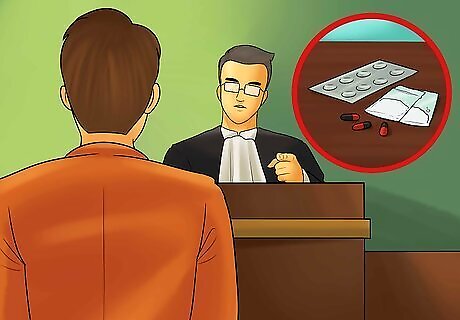
Evaluate the elements of the crime. Each crime is made up of specific elements. The prosecution must prove all of these elements beyond any reasonable doubt to convict you of the crime. Your attorney will go over the elements of the drug possession crime with you. The key elements of a possession charge are ownership and control. The prosecution must establish that you owned the drugs in question, and that you had full control over them. If you weren't aware that you had the drugs, this negates these key elements of the crime. You can't have ownership of something that doesn't belong to you and that you didn't know you had. Likewise, if you don't know something exists, you don't have any control over it. For example, maybe you gave a friend a ride and he left drugs in your car. You're subsequently pulled over and the officer finds the drugs in the car and arrests you for possession. Since you didn't even know the drugs were there, you didn't have possession of them. However, you'll need to show something at trial that proves this – your word alone probably won't be enough.
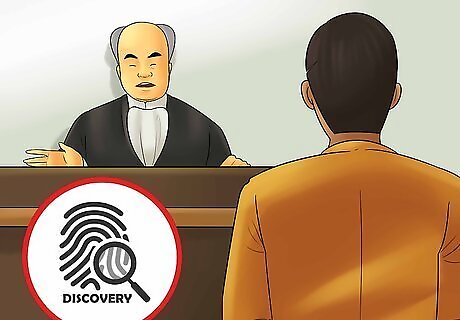
Participate in discovery. Through discovery, you and the prosecutor will exchange information related to the charges against you. You'll have access to all of the police reports and any evidence the prosecution plans to use against you at trial. Your attorney will analyze the documents and physical evidence produced by the prosecutor and alert you to weaknesses. For example, lab reports showing the presence of a controlled substance can be challenged for validity. The police reports also provide information about how the drugs were discovered and the proof the officers had, if any, that the drugs were yours. If evidence was obtained in violation of your constitutional rights, your attorney may file a motion to suppress. If the judge determines that your rights were violated in obtaining the evidence, he or she won't allow the prosecution to introduce it at trial.
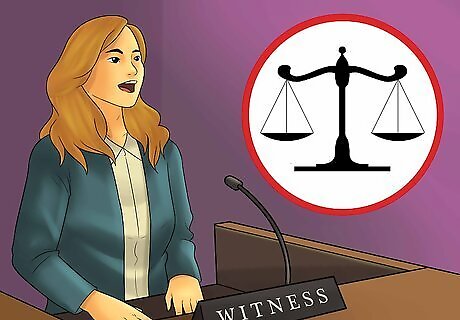
Talk to potential witnesses. Depositions, which are interviews conducted under oath, are another discovery tool. If the prosecutor has witnesses they plan to call to testify against you, your attorney may want to depose them. The prosecution will have the police officer who arrested you testify, as well as any lab technicians who analyzed the material confiscated. Any holes in the chain of custody can work in your favor. For example, if the lab tech didn't follow proper procedures to secure the evidence sample before leaving the room, it provides an opportunity for you to argue that the material could have been tampered with. Keep in mind that if you plan to testify at trial, the prosecutor may want to depose you as well. Any witnesses you've found to testify on your behalf may face depositions as well. For example, if you borrowed a friend's car that turned out to have drugs in it, you may be able to get your friend to testify that you had no knowledge of the drugs in the car when you were pulled over. The prosecutor likely will want to talk to your friend and get more detail about the story, as well as checking ownership documents for the vehicle.
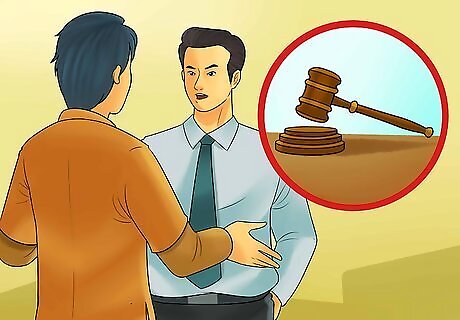
Formulate your strategy for trial. Once discovery is complete, you and your attorney will meet to discuss trial strategy and go over the evidence you plan to introduce in your defense at trial. If you intend to argue that you had no knowledge of the crime, this typically means you'll have to testify. Keep in mind that there may be other weaknesses in the case against you that you can emphasize at trial. For example, you may be able to argue that the police violated your constitutional rights by searching you without a warrant. One important aspect of legal defense is that you have the ability to offer alternative arguments – even if they seem to conflict with each other. Thus, for example, you can argue that you weren't aware the substance was there and also argue that you knew the substance was there, but thought it was a bag of sugar, not drugs.
Defending Yourself at Trial
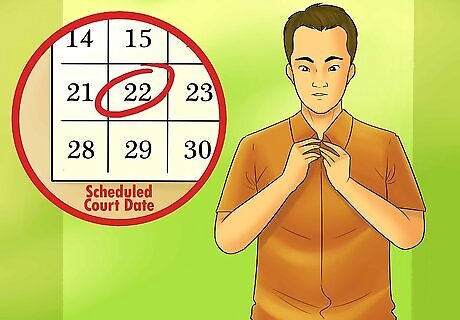
Appear on your scheduled court date. Showing up for your trial on time may be the most important part of your defense. If you fail to appear, or even show up late, the judge may issue a warrant for your arrest. If you didn't have to make bail initially, the judge may set bail following your arrest for failure to appear. If you were out on bail, that bail will likely be raised. Your attorney will meet with you one last time before the trial and brief you on how to act in court, what items you aren't allowed to bring into the courtroom, and how you should dress. Generally, you want to dress as though you were going to a job interview. Make sure your clothing is clean and neat, and fits you properly.
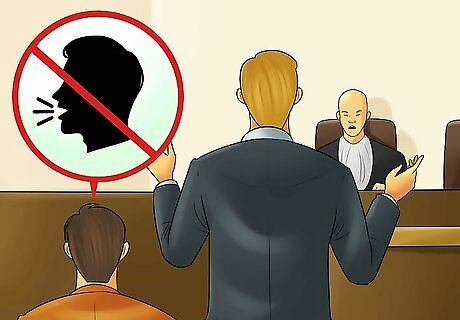
Pay attention during the prosecution's presentation. In a criminal case, the prosecuting attorney presents the state's case first. Each side will give a brief opening argument, and then the prosecutor will call witnesses to build the case against you. Any physical evidence that has been suppressed following an earlier motion cannot be introduced at trial. However, everything else is fair game. The prosecuting attorney will introduce this evidence by calling the police officer or law enforcement official responsible for finding or identifying the evidence. For example, the prosecutor typically will call the police officer who arrested you to testify regarding the content of the police report and the substance that was found. Your attorney will have the opportunity to cross-examine any witnesses the prosecution calls. He or she will ask questions that poke holes in the witness's initial story, hopefully causing the jurors to have doubts regarding their perception or their reliability. While witnesses are testifying or the prosecutor is talking, monitor your own body language and facial expressions. Avoid making any noise, rude gestures, or nasty expressions to the prosecutor or the witness on the stand. Keep in mind the jury is watching you.
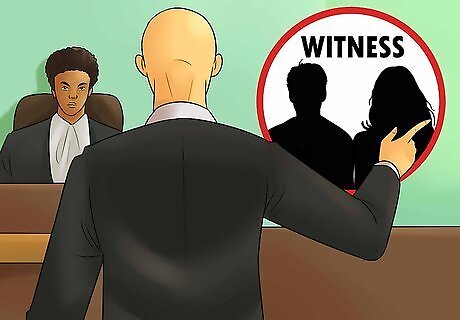
Introduce evidence in your defense. After the prosecuting attorney has finished presenting the state's case, you have the opportunity to tell your side of the story. Your attorney will introduce evidence or witnesses following the defense strategy you planned. Your witnesses may include people who have direct knowledge of facts on which your own testimony relies. For example, if you borrowed your friend's car, your friend may be called as a witness to testify to the fact that it was her car and not yours, and you didn't know about anything hidden inside. If part of your defense includes police misconduct, you also may have eyewitnesses who were present when you were initially stopped or arrested. Keep in mind the prosecution will be given the opportunity to cross-examine your witnesses, just as you had an opportunity to question theirs.
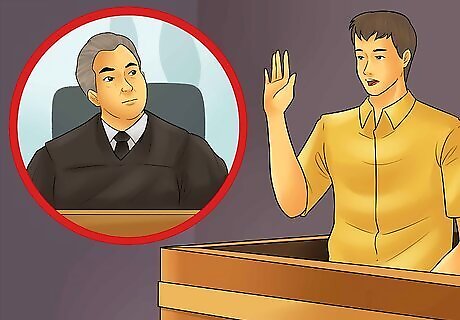
Be prepared to take the stand. You have the absolute right, under the Fifth Amendment, not to testify when charged with a crime. However, if you're defending yourself against possession charges by arguing that you had no knowledge of the crime, your testimony is crucial. Much of your pretrial preparation with your attorney likely involved the questions your attorney would ask you on the stand and how you would respond. The prosecuting attorney also will ask you questions. Often these questions, as well as the prosecutor's style of asking them, are designed to knock you off balance and trick you into saying more than you intended to say. Try your best to keep yourself together, and only answer the question directly asked – don't elaborate or supply additional information for context if your direct answer is clear and complete without it.
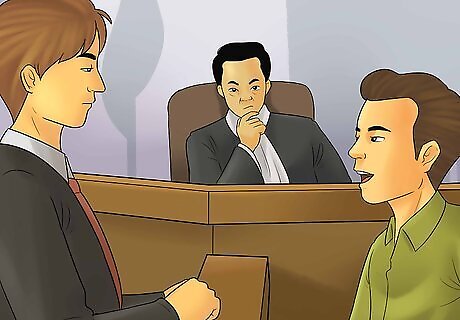
Emphasize the burden of proof. During closing arguments, your attorney typically will lean heavily on the burden of proof. He or she will do this by reminding the jury that it isn't necessary for you to prove anything you said in your defense was true. On defense, your only job is to poke holes in the prosecution's case. The prosecution bears the burden of proving your guilt beyond a reasonable doubt. This means if there is any doubt as to whether any of the elements of the crime are true, you cannot be convicted.
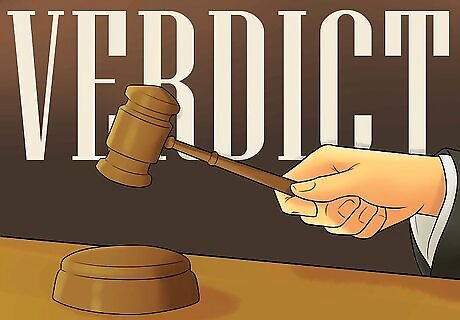
Receive your verdict. After the jury has concluded deliberations, you will find out whether your defense has been successful. If the jury has found you guilty, talk to your attorney about filing an appeal. Your attorney will discuss the next steps with you if you plan to continue to fight the conviction. If you have successfully defended yourself, the jury will return a verdict of not guilty. This means the entire ordeal is over and you can get on with your life.
















Comments
0 comment